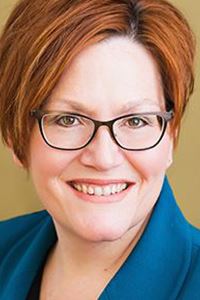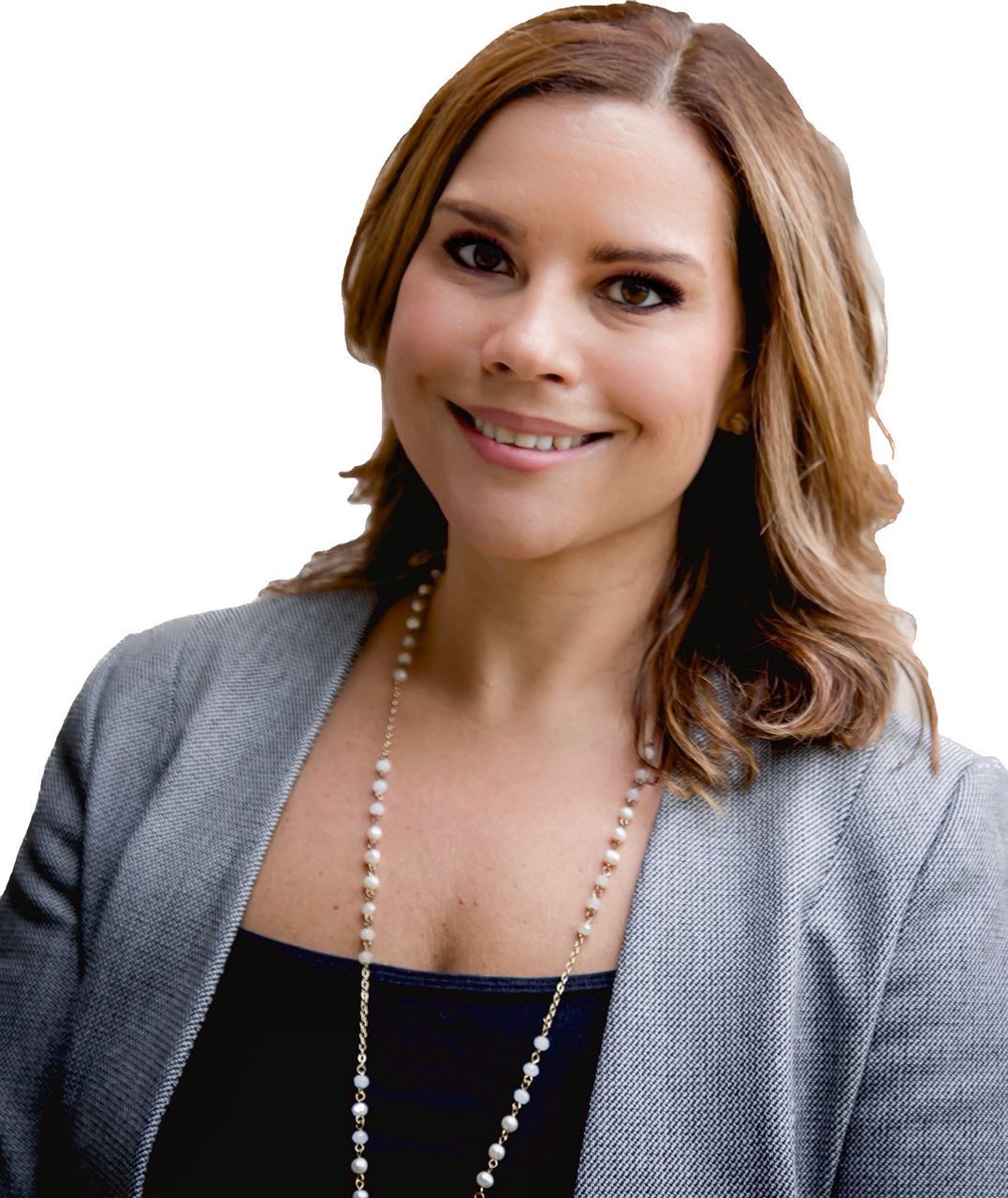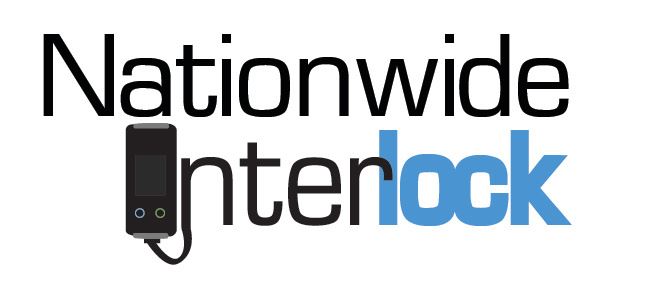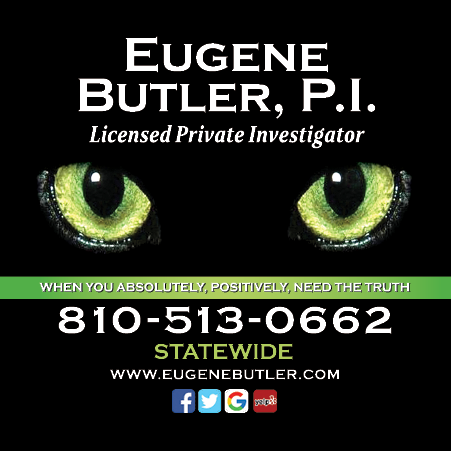The fall conference is on November 7-8, 2025 at Shanty Creek Resort 5780 Shanty Creek Rd., Bellaire, MI. Attendees may earn 12 total CLE Skill Training Hours. The cost is $480 for CDAM Members and $600 for Non-Members. Those with CDAM Direct Billing Agreements Register Free.
|
A IS FOR ATTORNEY | 9:30am - 5:30pm | 8 CLE Skill Hours | $320 CDAM Member/$400 Non-Member
Experience CDAM’s acclaimed new lawyer session. Our training has been refreshed and is even better than before! Learn what a new lawyer needs to know to begin practicing criminal defense. Open to all but geared toward those with 3 or less years' experience.
Tiffany DeBruin Faculty |  Rhonda B. Ives Faculty-in-Training |
Lisa Kirsch Satawa Faculty |
EVIDENCE BOOT CAMP E | 9:30am - 5:30pm | 8 CLE Skill Hours | $320 CDAM Member/$400 Non-Member
CDAM’s Evidence Boot Camp F, ideal for lawyers with five or more years’ experience. These all-day, small group, hands-on, immersion trainings develop fast thinking skills, critical to introducing evidence in court. Limited to sixteen, paired into groups of two, attorneys work on fact patterns that focus on Rules of Evidence. It’s been said that if you know the Rules of Evidence, you can Rule the Courtroom. It’s true, and by attending an EBC, you will position yourself to Master the Courtroom.
Elizabeth A. LaCosse Faculty |
Harry Mihas Faculty | .jpg) John Stecco Faculty-in-Training |
SLIDE TO ACQUIT | 9:30am - 5:30pm | 8 CLE Skill Hours | $320 CDAM Member/$400 Non-Member
In this hands-on, small group training, attorneys will master the art of using PowerPoint in trial with this full day program designed to make you a PowerPoint powerhouse. Learn how to create impactful PowerPoint presentations to enhance your opening and closing statements. This eight-hour session covers using PowerPoint to improve your storytelling, theme development, and techniques to maintain juror engagement. The class is taught by Jim Amberg, who has won many difficult trials using PowerPoint. Jim guarantees that this will change the way you conduct trials. It is expected that students will have a basic knowledge of how to use PowerPoint as this class is geared toward creation of dynamic PowerPoint trial presentations, not an intro into the basics of PowerPoint. THIS SESSION IS FULL!
James Amberg Faculty |
Victor Mansour Faculty |
YOUR CASE ISSUES | 4pm - 6pm | No CLE Hours Issued | Just Show Up!
Got a tough case? Need strategy ideas? Bring your most challenging matter—especially if it involves criminal sexual conduct—to this year’s Your Case Issues session. Nationally recognized CSC defense attorney Shannon Smith will join veteran hosts Daniel Grow and Mike Steinberg for a dynamic, no-holds-barred discussion. This is your chance to get candid, practical feedback from some of Michigan’s most experienced trial lawyers. The session is free, open to all attendees, and no reservation is needed. Just check in at the registration desk and we’ll direct you to the room. Bring your facts, your questions, and your best listening ears—this is where cases get better.
Daniel W. Grow Faculty |  Shannon Smith Faculty | Michael Steinberg Faculty |
CDAM BOARD MEETING | 6:15pm All CDAM members are welcome to attend. Those interested in running for CDAM’s Board of Directors must attend a board meeting within the past year.
LODGE PARTY | 8:00pm
At Shanty Creek Lakeside Restaurant. Open to All Conference Registrants. Complimentary Hors D'oeuvres; Cash Bar.
Friday - November 7th. - Speakers & Events - 9:00-5:00pm (8 MIDC-compliant hours)
8:30-8:45am Pre-conference tutorial on how to use the conference Whova App (no CLE accrued) by Cathy Gentry
9:00-12:00pm Welcome, CDAM President Bernard A. Jocuns
9:10-10:40am KEYNOTE -- Defending the Accused in a Changing World: Making Forensic Science Your Superpower by Jerome F. Buting
10:40-10:50am Break
10:50-12:00pm Staying Safe: ICE, CBP, and Attorney Rights by Amy V. Doukoure
12:00-1:00pm OPTIONS:
• Working Lunch: Storytelling and Bail Advocacy: Tools, Methods, and Jurisprudence by Blase Kearney
• Group Lunch
• Lunch on Your Own (limited options)
1:00-2:10pm Breakout Session 1 = 4 Options
• Defending Child Exploitation Cases by Luis David Castrillon
• Identifying and Preserving Trial Case Issues for Interlocutory Appeals by Kristina Dunne
• Mastering GenAI - Think More Deeply, Win More Consistently by Patrick Barone
• Misdemeanor Sentencing: Beyond Jail and Probation by Ashley Poindexter
2:10-2:25PM Transition Break
2:25-3:40pm Breakout Session 2 = 4 Options
• Firearms: Taking Aim at "The Trifecta" by Jonathan Roberts
• Litigating DNA and Technology: Genetic Genealogy and Probabilistic Genotyping Software by Megan Graham
• Plea Negotiations and Mitigation by Mike Davisson and Randi DeShone
• Uncovering Fraud in the Digital Age of AI by Luis David Castrillon
3:40-3:55m Transition Break
3:55-5:00pm Breakout Session 3 = 5 Options
• Federal Law Practice and Update by Elizabeth A. LaCosse
• Motion Practice for the Experienced Practitioner by Mary Chartier and Takura Nyamfukudza
• Motion Practice for the Novice Practitioner by James Piazza
• Sound Drum by Marina Chupac and Jordan Zuppke
• Texting, Privilege, and Professional Boundaries by Stuart Friedman
CONFERENCE CELEBRATION
8:00-11:00pm Cocktail Party by Nationwide Interlock. Beer/Wine and Appetizers.
9:00-12:00pm Friday Morning Plenary Sessions
Defending the Accused in a Changing World: Making Forensic Science Your Superpower Description: Most fields of forensic science were created specifically for law enforcement and designed to increase convictions, rather than presenting real, validated and reliable science to courts. Attorney Buting helped co-found the non-profit “Center for Integrity in Forensic Sciences” (CIFS) to increase the use of reliable science and decrease junk science in court. Defense attorneys are sometimes intimidated by apparently damning forensic evidence the government creates, but counsel can learn how to find the flaws and turn it into a powerful defense tool – your “superpower” to support reasonable doubt. Take-aways: • Attendees will learn how to find resources for self-education, and gain the confidence to confront or present forensic evidence in court • How to evaluate whether to challenge the admissibility or credibility of forensic evidence • What records to demand that are rarely provided in standard discovery • How to find the flaws in the State’s evidence, and • How to present the “science” in ways lay jurors can understand |
Jerome F. Buting |
Staying Safe: ICE, CBP, and Attorney Rights Description: Criminal defense attorneys will be equipped with critical knowledge to protect themselves and their clients amid escalating enforcement tactics. Learn how CBP handles border stops and cell phone searches—especially when attorneys are involved—what your rights are, and how to respond. We’ll also cover ICE courthouse arrests and CBP traffic stops, with practical guidance for safeguarding privileged information and preventing unlawful interference. Take-aways: • Know your rights during border cell phone searches • Protect attorney-client privilege across borders • Navigate ICE courthouse tactics • Identify unlawful CBP traffic stops • Prepare proactive
legal responses to enforcement overreach |  Amy V. Doukoure Canton, MI |
12:00-1:00pm Group Lunch, Lunch on Your Own, or Working Lunch
Working Lunch: Storytelling and Bail Advocacy: Tools, Methods, and Jurisprudence Description: Experienced defenders know that rote legal recitations regarding the right to affordable bail and rattling of bond factors rarely lead to successful outcomes for our clients. However, high-volume caseloads and limited time constrict the ability of defenders to craft bespoke bond arguments. This session will focus on concrete steps to obtain information time-limited client interviews, weaving stories from limited information, and integrating precedent and bond factors into our arguments. The session will also equip defenders to make a record on bail to enable effective appeal and collateral attack, for the truly heartless and recalcitrant jurist. Take-aways: • Understand that current advice for bond advocacy centered around SCOTUS & MSC precedent is ineffective and outdated, and this is because judges know there is no consequence to ignoring that precedent. • Understand that storytelling is still the heart of effective bail advocacy; and • Recognizing that defenders are overburdened and unable to spend hours on crafting a bond argument; •Give tools for interviewing clients under time limited circumstances and archetypes of stories that can used for a bond argument. • Advice on weaving in bond factors and precedent into the content of a story, rather than structuring the story around the bond factors. |
Blase Kearney Austin, Texas |
1:00-5:00 BREAKOUTS 1, 2, 3 with multiple options in each!
~ Each track will have 15-minute transition break ~
1st BREAKOUT 1:00-2:10pm
Option 1 Digital Forensics In Child Exploitation Cases Description: This course will guide legal professionals defending clients accused of Child Sexual Abuse Material cases. In this course you will learn how most CSAM cases are initiated and how law enforcement investigates these cases. We will guide the learner to better understand strategic approaches to investigating these cases and how they may leverage digital forensics in effectively resolving these cases appropriately. |
Luis David Castrillon Columbus, Ohio |
Option 2 Identifying and Preserving Trial Case Issues for Interlocutory Appeal Description: This Session is aimed at Trial Attorneys. Goals: identifying cases and issues that might require an Interlocutory Appeal. Take-aways: • What kind of Issues? Motions to Quash? Motions to Suppress? Other Pretrial Issues and Issues that might arise during Trial. • The Window of Opportunity-Deadlines. • Client Considerations: Bond? Incarcerated? Delays. • Electronic Filing. • Stays. • How to get help Writing/Filing/ Arguing. |
Kristina Dunne Detroit |
Option 3 Mastering GenAI - Think More Deeply Win More Consistently Description: GenAI has the power to sharpen your advocacy, helping you think more deeply, work more quickly, and win more consistently, elevating every part of your practice, from case analysis to courtroom strategy. But with that power comes real risk: breaches of confidentiality, GenAI “hallucinations,” and the growing threat of being replaced by someone who knows how to use it better. Therefore, mastering prompt engineering isn’t optional. This seminar delivers practical strategies to harness GenAI’s strengths, avoid its dangers, and sharpen your edge, so you stay effective, stay ethical, and stay indispensable. Take-aways: • How to craft effective prompts that unlock GenAI’s full potential for criminal defense work. • Ways to enhance legal analysis, strategy, and advocacy using GenAI without cutting ethical corners. • Practical techniques for spotting and avoiding GenAI pitfalls like hallucinations and confidentiality breaches. • Why prompt mastery, not blind trust, is the key to staying relevant and indispensable in the GenAI era. • A clear framework for integrating GenAI into daily practice with confidence, competence, and control. |
Patrick T. Barone Birmingham, MI |
Option 4 Misdemeanor Sentencing: Beyond Jail and Probation Description: Join us for an overview of non-custodial, unsupervised misdemeanor sentences focused on the guidance provided by MCL 769.5(3). The difference between serious and non-serious misdemeanors will be covered to ensure an understanding of when 769.5(3) applies. The proposed presentation will also include an explanation of valid deviations from the statute and how non-probation sentences are enforced. Take-aways: • What is considered a serious misdemeanor vs. non-serious misdemeanor. • What are alternatives to jail and probation sentences. • Learn when a is a court allowed to deviate from MCL 769.5(3); • Learn how a court enforces non-custodial, unsupervised
sentences.
|
Ashley Poindexter Kent County, MI |
2nd BREAKOUT 2:25-3:40pm
|
Option 1 Firearms: Taking Aim At “The Trifecta” Description: This session presents a wide-ranging survey of the “national tradition” of firearms regulation, compiling hundreds of historical public carry laws across every state. This session will trace the origins of the “trifecta” in Michigan: (1) concealed carry, (2) possession by a prohibited person, and (3) felony firearm. It will also demystify the “historical analysis” test articulated in Bruen and provide tools for Michigan defense attorneys to successfully litigate Second Amendment challenges. Take-aways: • Comprehensive history of firearms regulations in Michigan. • Compelling
narrative strategies for making applied challenges in CCW/FIP/FF cases • Guidance
on how to incorporate the Heller/Bruen/Rahimi framework into motions. • Sample historical evidence and briefing materials. |  Jonathan Roberts Detroit, MI |
Option 2 Plea Negotiations and Mitigation: The Role of Social Workers in Criminal Defense Description: Social work staff members Mike Davisson and Randi DeShone from public defense office NDS Detroit will explain the expertise of social workers as it relates to the profession of criminal defense. The range of appropriate referrals to social work, mitigating biopsychosocial factors, and the various types of written mitigation will be identified and discussed. How to strategically use the mitigation will be covered, as well as what social workers need from attorneys over the course of collaboration on a case. Take-aways:
|
Randi DeShone Detroit, MI |
Mike Davisson Detroit, MI |
Option 3 Digital Forensics Uncovering Fraud in the Age of Generative AI Description: Current generative AI and large language models has evolved, and images or other content can quickly and easily fool the majority of society. Legal professionals must understand how these tools are being used to commit fraud. In this course you will learn how AI is being used to generate false images, alter images and video or create content that is not original. We will discuss the tools being used to generate this content and how digital forensics can be used to uncover such use. |
Luis David Castrillon Concord, NC |
Option 4 Litigating DNA and Technology: Genetic Genealogy and Probabilistic Genotyping Software Description: DNA has been part of at least some types of criminal cases for decades, but not all DNA issues are the same. We have seen the emergence of forensic techniques that pair DNA evidence with technology. For example, “genetic genealogy” is an investigative approach that purports to use DNA evidence and genealogy searches to identify suspects through familial ties. And probabilistic genotyping software purports to analyze DNA samples that are too complex for a human to assess on their own. This session will introduce these topics and help you prepare to litigate related challenges in your clients’ cases. Take-aways:
|
Megan Graham Iowa City, Iowa |
3rd BREAKOUT 3:55-5:00pm
|
Option 1 Federal Law Practice and Update: Eastern and Western District Of Michigan Description: In addition to an update on recent Sixth Circuit cases, presenters will provide an update on federal law and discuss emerging issues. |
Elizabeth A. LaCosse Marquette, MI |
Option 2 Motion Practice for the Novice Practitioner Description: Designed to equip early-career criminal defense attorneys with essential skills for navigating motion practice effectively. Participants will delve into the mechanics and strategic use of key pre-trial motions—including bond, discovery, motions to quash, and suppress—and gain insight into trial motions such as prejudicial versus prohibitive challenges, directed verdicts, and motions to produce witnesses. The session also emphasizes the importance of legal research, introducing practitioners to resources that support the drafting and argumentation of motions, ultimately strengthening their courtroom advocacy and procedural confidence. Take-aways: • Learn about the use and mechanics of Pre-Trial Motions including, but not limited to, Bond, Discover, Quash, and Suppress. • Learn about strategies on how and why to use Trial motions such a prejudicial v prohibitive motions, Directive Verdict, Motion to Produce Witness. • Learn about applicable research materials to support various motions. |
James F. Piazza Saginaw |
Option 3 Motion Practice for the Experienced Practitioner Description: Motions set the stage for success! Join Mary and Takura for an interactive session to discuss best practices for an effective motion practice. Because motions can set up a case for litigation success, this session will explore strategies to achieve the best results for defending clients. Take-aways:
|  Mary Chartier Okemos, MI |
Takura Nyamfukudza Okemos, MI |
Option 4 Texting, Privilege, and Professional Boundaries Description: Clients often rely solely on their smartphones for legal communication, making texting a critical—and ethically charged—channel for criminal defense attorneys. This presentation explores how attorneys must not only protect privileged information through secure, encrypted messaging and digital preservation, but also appreciate the larger systemic issues at play. By integrating professional responsibility with technological awareness, we’ll examine how limited internet access, especially among indigent clients, raises equity concerns. Ethics can’t be siloed—it must be viewed through the lens of access to justice, digital inclusion, and practical technology policies that both protect clients and reflect the realities of the communities we serve. Take-aways: • Text messaging can be an effective way to communicate with your client. • There has to be some balancing between privilege and effective client communication. The more critical the data, the greater the care. By analogy, I will refer to the Government security system of confidentiality: sensitive information, top secret, and must be preserved. • Client messages need to be preserved; • Special concern when taking your phones over international borders where they are subject to searches; and • Boundaries and “Penn Pals.” How to have a personal life when clients can reach you 24/7. |
Stuart Friedman Livonia, MI |
Option 5 Sound Drum -- Chill Out and Relax Description: The practice of law can be demanding, placing immense strain on both mind and body. The high stakes and constant pressures of the profession often leave even the most resilient attorneys running on empty. Take a step back with a cozy sound bath and guided meditation hosted by Zupac Law. This restorative session is designed to help you release stress, restore balance, and settle into deep relaxation. Come as you are—dress comfortably, show up, and simply breathe. *Bring a mat or we’ll have some for sale. CDAM will also have towels on hand to use. |
Jordan Zuppke and Marina Chupac Royal Oak, MI |







































